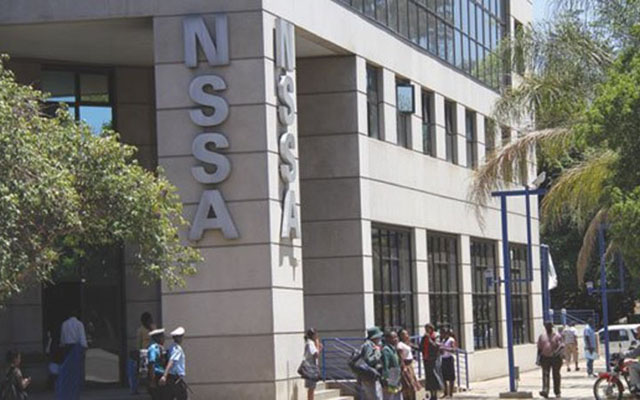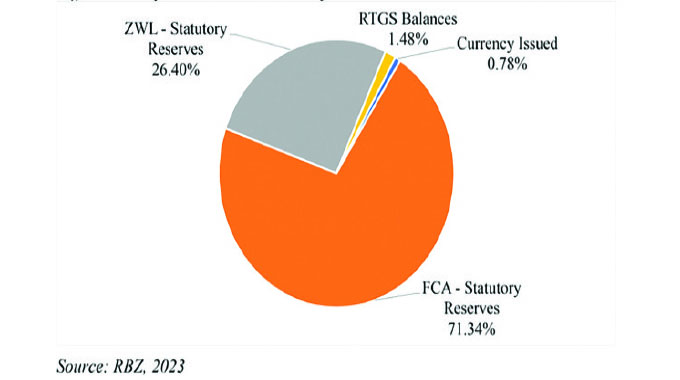NSSA records $165m profit

Africa Moyo Business Reporter
The National Social Security Authority (NSSA) is expected to cap a stellar year with a profit of over $165 million for the period to December 31, 2017. The profit is driven by the organisation’s thrust on delivering value for pensioners through various strategies including realigning the labour-force. The profit will be $65 million – representing 59 percent – more than the $98 million recorded last year.
NSSA board chairman Robin Vela, told The Herald Business yesterday that a culture of hard work and the restructuring exercise, which saw the staff head count coming down to 120, contributed to the organisation’s good performance this year.
“Profit for the year to 2017 will be in excess of $165 million compared to $98 million for the year to 2016. More importantly, the assets of NSSA are up from $1,2 billion in the year to December 31, 2016 to $1,4 billion in the year to December 31, 2017. Investment income is also up to $77 million in the year to December 31, 2017 from $20 million in the year to December 2016.
“All this was achieved due to the new philosophy of focusing on delivery by all involved in NSSA. The restructuring exercise is starting to bear fruit,” said Mr Vela. The new NSSA board members – who took office in 2015 – embarked on a massive restructuring, which saw the sacking of five top executives headlined by the then general manager James Matiza.
The executives were fired over a raft of allegations including plunging the authority into questionable investment deals such as the NSSA Beitbridge Hotel and the purchase of Celestial Park in Harare, where property experts say it will take several years for NSSA to recoup its investment. However, as the benefits of the restructuring exercise start to kick in, the NSSA board resolved to effect a 33,33 percent minimum pension pay out increase, which saw the pension shooting to $80 from $60.
The minimum pension increase was with effect from October. The board also decided to award a bonus to all pensioners, employees and management on the back of further improved performance of the Authority for the year ending December 31, 2017. A pensioners’ representative board, the Pensioners Union Trust of Zimbabwe (PUTZ) general secretary Amatus Rwazemba, has since written to the NSSA board praising them for the decision to award pensioners’ a bonus.
“. . . membership received with great joy and sense of appreciation to the NSSA board’s decision to pay its pensioners the 2017 13th cheque . . . As one of the largest national organisations representing pensioners, PUTZ would like to congratulate you further for managing to grow funds under your portfolio and, by extension, its profits which grew by more than $100 million,” said Mr Rwazemba in a letter to Mr Vela dated December 6, 2017 seen by The Herald Business. NSSA is one of the few best performing parastatals which post regular profits and publish audited annual results in line with Government expectations that State entities’ operations must observe good corporate governance principles.
In the year under review, NSSA consolidated its insurance investments, with all conditions precedent in relation to the First Mutual Holdings Limited’s acquisition of control of NicozDiamond Insurance being met. NSSA also snapped up majority shareholding in, and reconstituted the Rainbow Tourism Group board as part of efforts to ensure profitability of the firm going forward.
Mr Vela said NSSA remains on course to transforming itself into a customer-centric organisation in line with its new mantra, “NSSA by choice, not by statute”. In his 2018 Budget Statement, Finance and Economic Planning Minister Patrick Chinamasa said Government is suspending generous financial support to underperforming parastatals until they come up with bankable projects, and show commitment to transform the entities’ operations.
Last year’s financial audits show that 38 out of 93 SEPs incurred a combined $270 million loss attributed to questionable corporate governance practices and ineffective control mechanisms. Audits also showed that 70 percent of the 93 SEPs are technically insolvent owing to gross mismanagement. Government has 107 SEPs, implying that 14 of them did not submit last year’s audited results.






Comments